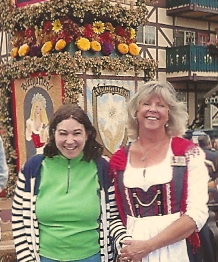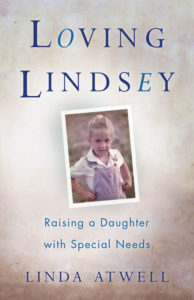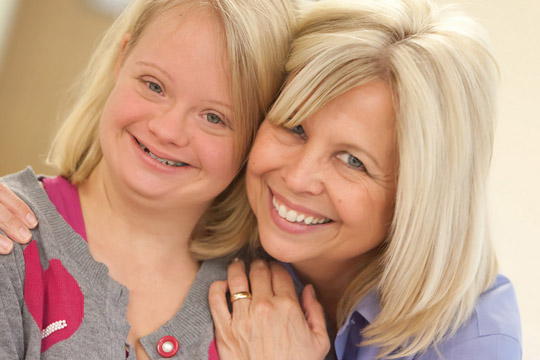In October, I wrote a post about independence for my daughter. If you are the parent of a child with developmental disabilities, you probably understand that independence is not necessarily guaranteed for every single one of our special kids. And even with support, most of us will continue to be partial caregivers throughout our adult child’s life. But in Oregon, (and possibly your state, too) there could be opportunities to help your adult child gain some of the independence he or she desires. Lindsey achieved a greater sense of freedom with the provider-program offered through our state. Resource Connections of Oregon hires individuals who want to be one-on-one providers to adults with mental and/or physical disabilities. These are part-time positions. In Lindsey’s case, she qualifies for approximately forty-five service hours a month.

Philis is Lindsey’s current provider/assistant and has been working with my daughter for slightly over one year. I thought it would be helpful to hear, from the provider’s point of view, what her job is like–just in case you (or someone you know) might be interested in this program. Philis candidly answered the following questions and agreed to let me share them with you. (Some responses have been edited for clarity.)
1) Do you like being a provider? Tell me why? I think it’s a privilege to be Lindsey’ s provider. Yet I find the title “provider” confusing, maybe misleading because I feel more like a a companion, advisor, chauffeur, and friend. But yes, working with Lindsey is a good placement for me. I work another job in the local school system and am comfortable around people with disabilities. Whether it be out in public or in private. I think it’s good for Lindsey to be with someone who isn’t embarrassed or apologetic. When things are running smoothly, working with Lindsey is a lot of fun. On the other hand, there are times when Lindsey can be infuriating!
2) What is your favorite part? Lindsey sometimes has really clear insight, and on those days, we have great conversations. In the past, Lindsey has tried to monopolize our conversations, but I no longer allow her to do that. Now she generally allows me to take part too. I think her new counselor (Lindsey has been in individual counseling for several years now) is carefully redirecting Lindsey’s self awareness. For instance, after a recent counseling session, Lindsey patted my leg and said that she now knows that her problems aren’t about me or anyone else. They are about her. My immediate thought was a skeptical, “sure.” But then Lindsey said, “I have to start working on changing myself and the counselor is going to help me.” That was a favorite moment for sure.
3) Are there any benefits to working with someone on one-on-one? Do you prefer on-one-one or would you like to have two or more clients at the same time? I really don’t think that a group provider would be conducive to the personal relationship that makes this type of program work. It would be like taking a group from the classroom to town. Your biggest concern is avoiding chaos or losing someone out in public. One-on-one is what Lindsey needs. If there were more than one client at a time, I might turn into a referee.
4) What makes being a provider difficult? What about good? Difficult and good are usually defined by Lindsey’ s state of mind on the days that we meet. I am learning to re-direct her when she gets negative.
5) Would you recommend this work to someone else? I’d recommend this work to other people who I know and trust, and who’ve worked with individuals with special needs. I think that more harm than good can be done when individuals with mental challenges are entrusted to people who are unprepared or uneducated about disabilities…no matter how good their intentions. You have to let a lot of stuff run off your back. And you can’t interject your baggage into the relationship because the client usually can’t handle anymore baggage than their own.
I’ve shared one minor life struggle with Lindsey because I felt this situation might indirectly affect her. Yet I’m careful to keep any explanations on a level she can digest. For instance, I told her that my sister is dying of lymphoma. I didn’t share this information to get a sympathetic response. I calmly shared it because the time will come when my sister’s illness will impact my life and I may miss a couple of our scheduled appointments. That way, if and when that time comes, I will be able to take time off without hysteria or shock from Lindsey. I try to prepare Lindsey in the same way I would prepare any other person. I respect Lindsey as an adult. And she often surprises me with her compassion and/or intuition.
6) What has been my favorite day as a provider? Actually, the best times are on any day when Lindsey is in a sweet mood and not perseverating on anything negative. I like to ask Lindsey what she thinks about this or that and let her give me “life” advice. This tactic puts her into a thoughtful mood and I find it interesting how she looks at things.
My favorite evening with Lindsey was when she helped build the monument at Octoberfest in Mount Angel. She was proud to be assisting us and the O’fest directors really enjoyed having her there. Mount Angel has a community program for disabled adults and three of the directors have children with disabilities, so everyone was extremely comfortable being around her. It turned out to be a really good experience for Lindsey and me. After we finished the monument, we all took her out to dinner and she had a great time.
7) Is being a provider a challenge? Sure, but I made a commitment to Lindsey. She expects me to follow through and spend time with her. My husband is supportive, so the commitment to Lindsey has not be difficult. That said, there are times I am really frustrated, even angry with Lindsey. Recently she called and left a long message that took up all the space on my answering machine. I’d been expecting a message from my sister and was frustrated that Lindsey left no room for anyone else. We’d just talked about appropriate message leaving. I’d asked her to keep it short and I’d call back as soon as I could. I planned to discuss the incident with Lindsey, but once I made contact, she immediately apologized and asked me not to listen to the message. I’d already heard part of it, but decided to let her save face, and told her I’d erase it. This seemed to lighten her spirit and we had a really nice afternoon. I have convinced her, I THINK, that she doesn’t need to call me to plan ahead every little thing we’ll do next time we’re together, we can do whatever she wants, and we can decide at the time of our meeting.
8) When you tell people that you do this job, how do you describe it to them? I tell them that I work for an agency that is under the Department of Human Services (DHS) umbrella and that my commitment to Lindsey is as a companion, advisor, chauffeur, and friend. (She says we aren’t friends yet because we haven’t known each other long enough.) Sometimes these statements make me want to scream. On the other hand, when I’m with Lindsey, I’ve laughed more than I have in years.
 My first book will be coming out September 26, 2017. If you are interested in learning more about Loving Lindsey: Raising a Daughter with Special Needs, please click here.
My first book will be coming out September 26, 2017. If you are interested in learning more about Loving Lindsey: Raising a Daughter with Special Needs, please click here.
I appreciated Philis’ honesty in answering these questions. Parenting an adult child with special needs isn’t easy, so it won’t always be easy to be a provider either. My daughter is a lovely young lady, but (like any typical adult) she can be extremely challenging. If you (as a parent) become frustrated with some of the things your adult child does, please recognize that a provider may experience some of these same feelings. However, if the provider has your child’s best interest at heart, most of the time the differences and frustrations can be worked out.
Here is a video on How To Be A Successful Provider:

